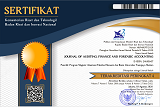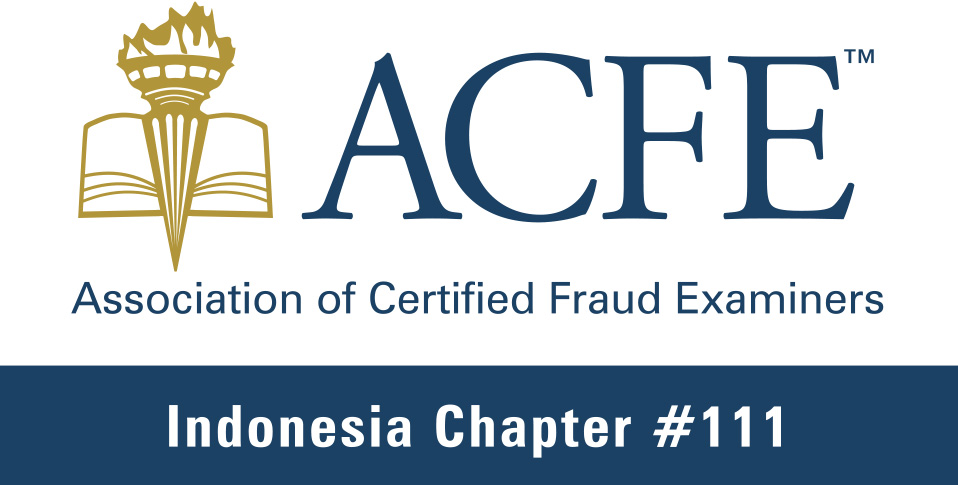Overload, Stress, and Satisfaction: Does It Impact Auditor's Intentions to Resign?
Abstract
The study aimed to investigate the impact of work overload, work-related stress, and job satisfaction on the turnover intentions of auditors in the "Big Four" public accounting firms in Indonesia. The study utilized a quantitative research design, where a survey questionnaire was distributed to a sample of auditors working in the firms. The study findings provide important insights into the factors influencing auditors' resignation decisions in Indonesia. The results indicate that work overload and work-related stress have a positive impact on auditors' intention to resign, while job satisfaction has a negative impact. The study recommends that firms should focus on reducing workloads and stress levels and improving job satisfaction to reduce auditor turnover. This can be achieved through better workload management, providing career development opportunities, promoting work-life balance, offering competitive compensation and benefits packages, and creating a positive work environment. These recommendations can inform strategies for retaining and motivating auditors, which can ultimately improve the firm’s operations.
Keywords
Full Text:
PDFReferences
Ajzen, I., & Fishbein, M. (1992). Understanding attitudes and predicting social behavior, Englewood Cliffs. Journal of Personality and Social Psychology, Jan 1992, 98–109.
Al-Khaddash, H., Al, R., Arab, N. B., Bank, I., & Amman, J. (2013). Factors affecting the quality of Auditing: The Case of Jordanian Commercial Banks. In International Journal of Business and Social Science (Vol. 4, Issue 11). www.ijbssnet.com
Bakker, A. B., & de Vries, J. D. (2021). Job Demands–Resources theory and self-regulation: new explanations and remedies for job burnout. Anxiety, Stress and Coping, 34(1), 1–21. https://doi.org/10.1080/10615806.2020.1797695
Baolei, Q. (2017). Determinants and Economic Consequences of Signing Auditor Turnover: A Large-Scale Study from China. The University of Texas At San Antonio, College Of Business Working Paper Series, 1–44. http://cricpa.com/Public_Company_Audit_Process.aspx
Barać, I., Prlic, N., Lovric, R., Kanisek, S., Nemet, L. D., & Plužaric, J. (2018). Development and psychometric testing of the croatian version of the job satisfaction scale in hospital nurses. Journal of Nursing Measurement, 26(1), 121–133. https://doi.org/10.1891/1061-3749.26.1.121
Beehr, T. A., & Newman, J. E. (1978). Job Stress, Employee Health, And Organizational Effectiveness: A Facet Analysis, Model, And Literature Review. Personnel Psychology, 31(4), 665–699. https://doi.org/10.1111/j.1744-6570.1978.tb02118.x
Choi, J., Kim, J.-B., Kim, F., & Zang, Y. (2010). Institutional Knowledge at Singapore Management University Audit Office Size, Audit Quality and Audit Pricing Audit Office Size, Audit Quality and Audit Pricing. Auditing: A Journal of Practice & Theory, 29(1), 1–40. https://ink.library.smu.edu.sg/soa_research/10
Demirović Bajrami, D., Terzić, A., Petrović, M. D., Radovanović, M., Tretiakova, T. N., & Hadoud, A. (2021). Will we have the same employees in hospitality after all? The impact of COVID-19 on employees’ work attitudes and turnover intentions. International Journal of Hospitality Management, 94. https://doi.org/10.1016/j.ijhm.2020.102754
Downey, D. H. (2018). An Exploration of Offshoring in Audit Practice and the Potential Consequences of Associated Work “Redesign” on Auditor Performance. A Journal of Practice & Theory, 2, 197–223.
Farcane, N., Bunget, O. C., Blidisel, R., Dumitrescu, A. C., Deliu, D., Bogdan, O., & Burca, V. (2022). Auditors’ perceptions on work adaptability in remote audit: a COVID-19 perspective. Economic Research-Ekonomska Istrazivanja, 36(1), 422–459. https://doi.org/10.1080/1331677X.2022.2077789
Hakro, T. H., Abbasi, K. H., & Mahesar, H. A. (2021). Influence of Organizational Culture, Supervisor Behavior and HRM Practices on Employee Turnover Intentions: Study of NGOs Sector of Sindh, Pakistan. Research Journal of Social Sciences and Economics Review (RJSSER), 2(1), 97–105. https://doi.org/10.36902/rjsser-vol2-iss1-2021(97-105)
Hakro, T. H., Jhatial, A. A., & Chandio, J. A. (2022). Exploring The Influence Of Work Overload and Job Stress On Employees Turnover Intentions. Gomal University Journal of Research, 38(02), 193–204. https://doi.org/10.51380/gujr-38-02-06
Hee, K. W. (2018). Auditor Turnover and the Likelihood of Future Accounting Litigation. Journal of Accounting and Finance, 18(2). https://doi.org/10.33423/jaf.v18i2.405
Hermawan, P. H., & Ariyanto, D. (2019). Pengaruh Stress Kerja Dan Emotional Intelligence Terhadap Turnover Intention Internal Auditor. E-Jurnal Akuntansi, 29(1), 356. https://doi.org/10.24843/eja.2019.v29.i01.p23
Jang, J., & George, R. T. (2017). The Relationship of Emotional Intelligence to Job Stress, Affective Commitment, and Turnover Intention among Restaurant employees. International Journal of American Accounting Association, 1(4).
Jung, H. S., Jung, Y. S., & Yoon, H. H. (2021). COVID-19: The effects of job insecurity on the job engagement and turnover intent of deluxe hotel employees and the moderating role of generational characteristics. International Journal of Hospitality Management, 92. https://doi.org/10.1016/j.ijhm.2020.102703
Khavis, J. A., Szerwo, B., Goehl, A., Gu, F., Guggenmos, R., Kachelmeier, S., Kim, M., Mcvay, S., Noh, S., Pevzner, M., Suk, I., & Xu, W. (2022). Audit-Employee Turnover, Audit Quality, and the Auditor-Client Relationship Acknowledgements. https://doi.org/https://dx.doi.org/10.2139/ssrn.4193139
Labrague, L. J., & de los Santos, J. A. A. (2021). Fear of COVID-19, psychological distress, work satisfaction and turnover intention among frontline nurses. Journal of Nursing Management, 29(3), 395–403. https://doi.org/10.1111/jonm.13168
Lei, D., & Zhou, Y. (2020). Auditor-Client Disagreements, Auditor Resignations, And Audit Fees Charged By Successor Auditors. In The Journal of Applied Business Research (Vol. 36, Issue 1).
Nouri, H., & Parker, R. J. (2020). Turnover in public accounting firms: a literature review. In Managerial Auditing Journal (Vol. 35, Issue 2, pp. 294–321). Emerald Group Holdings Ltd. https://doi.org/10.1108/MAJ-03-2018-1823
Pattinasarany, D. R. (2019). Apakah Tuntutan Pekerjaan Dan Stres Kerja Penentu Turnover Intention Auditor Pada Beberapa KAP Di Jakarta. Jurnal Manajemen, 16, 20–41.
Pradana, A., & Salehudin, I. (2015). Work Overload and Turnover Intention of Junior Auditors in Greater Jakarta, Indonesia. The Southeast Asian Journal of Management, 9(2), 108–124. https://doi.org/10.21002/seam.v9i2.4950
Qureshi, M. I., & Iftikhar, M. (2012). Job Stress, Workload, Environment and Employees Turnover Intentions: Destiny or Choice. Archives Des Sciences, 65(8). https://www.researchgate.net/publication/256035381
Scanlan, J. N., & Still, M. (2019). Relationships between burnout, turnover intention, job satisfaction, job demands and job resources for mental health personnel in an Australian mental health service. BMC Health Services Research, 19(1). https://doi.org/10.1186/s12913-018-3841-z
Schlotz, W., Hellhammer, J., Schulz, P., & Stone, A. A. (2004). Perceived Work Overload and Chronic Worrying Predict Weekend-Weekday Differences in the Cortisol Awakening Response. Psychosomatic Medicine, 66(2), 207–214. https://doi.org/10.1097/01.psy.0000116715.78238.56
Schlotz, W., Yim, I. S., Zoccola, P. M., Jansen, L., & Schulz, P. (2011). The Perceived Stress Reactivity Scale: Measurement Invariance, Stability, and Validity in Three Countries. Psychological Assessment, 23(1), 80–94. https://doi.org/10.1037/a0021148
Watson, A., Thompson, L., & Meade, A. (2007). Measurement invariance of the job satisfaction survey across work contexts. … Annual Meeting of the Society for …. http://www4.ncsu.edu/~awmeade/Links/Papers/JSS_MI(SIOP07).pdf
Zonoozi, S. J., & Jafari, M. (2022). The impact of Work-Family Conflict on Psychological Health, Work Stress, and the Turnover Intentions among frontline Nurses against Covid 19 Disease. Gurukul Business Review, 18(1). https://doi.org/10.48205/gbr.v18.1
DOI: https://doi.org/10.21107/jaffa.v11i1.19595
Refbacks
- There are currently no refbacks.
Our Journal indexed by:
Our support tools using:



This work is licensed under a Creative Commons Attribution 4.0 International License.












